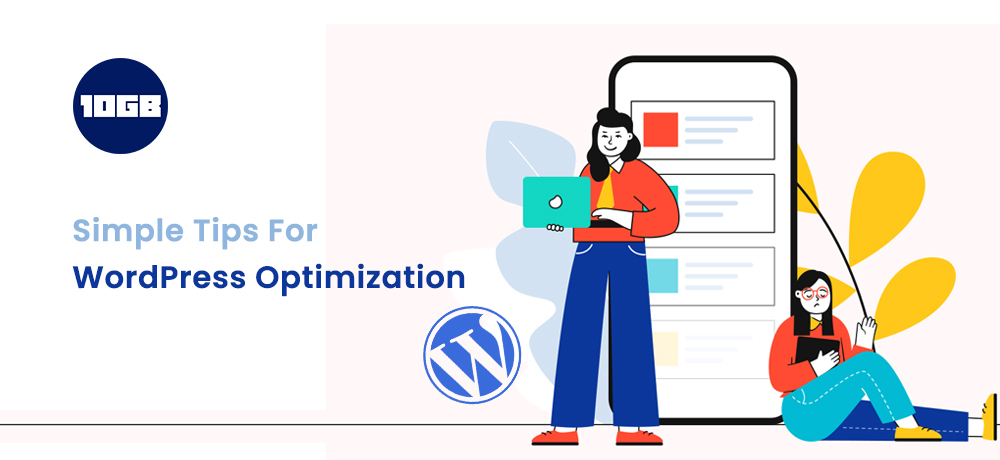WordPress is the most popular CMS with 60.4% of the market share. Here you can read in detail about stats. This indicates that WordPress is utilized by 33.5% of all the websites online. The numbers are huge and as it is easy to utilize, stable, and gives tons of plugin and themes so its the most preferred choice for website owners and developers. Being said that it is highly crucial to acknowledge what WordPress Optimization is.
WordPress Optimization is the method of tweaking, enhancing, and customizing the WordPress set up to improve performance, make it quicker, and effortlessly recognizable. It incorporates several things such as optimizing databases, updating WordPress, having the correct system specification, management of plugins. All these steps are entitled to make a WordPress website more efficient. Now let’s go deep into WordPress optimization and see what it brings.
WordPress optimization Tips
Having the correct system specification
Similar to other software WordPress has its own particular need in terms of hardware and utilities to run it seamlessly. For WordPress system specification is following:
- PHP version 7.2 or higher
- MySQL version 5.6 or higher Or MariaDB version 10.0 or higher
- Support for HTTPS
The first and foremost thing is to make sure your server has the above specifications set straight. An easier option would be to pick a WordPress Hosting because it already handles system requirements and specifications. On the other hand not running WordPress on its perfect specifications could make your website slow and even could encounter website crashes. Resolving such issues should be your priority when doing WordPress Optimization. We at 10GB Hosting offer WordPress Hosting at an affordable price. Meanwhile, you can read the article Easy Steps to Build a WordPress Website
Keep WordPress and your plugins up to date
Running an outdated version of WordPress is the worst thing to do to your website. Not only the performance of the site but also the security of the website will be adversely affected. It is noted that hackers easily hack the WordPress site that runs on older versions of WordPress. Universal truth is that every WordPress Update releases there come several bug fixes and improvements. It is highly suggested to make the most of these features.
Along with keeping WordPress updated you should make sure that you delete the WordPress plugins that you no longer use. This will make the whole WordPress ecosystem a lighter and faster. This also prevents wastage of space and requirement for maintenance of such plugins that have been deleted.
Optimize WP-Database
The WP Database contains everything from pages, posts to theme settings, etc. As the website keeps getting better more a more data is stored in the WP Database and becomes heavy and sluggish. To prevent this you need to regularly optimize the database so it stays fast. Few of the plugins such as Advance Database Cleaner, WPoptimize, and WP DMManager help in WordPress optimization.
Optimizing Speed
For optimal user experience, speed is crucial. Furthermore, it helps with organic search visibility. Use tools like Lighthouse and Google PageSpeed Insights that will help in identifying website speed and also know where and how to improve. Few fundamental thing you need to take care of are:
- Enable Gzip on server
- Make sure that you optimize and compress images
- Use sprites to deliver images effectively and leverage server-side and browser caching.
Security
Optimizing the website security should be a topmost priority as no website owner would like to go through the painful method recovering from data loss or breach. As we discussed earlier you should keep your WordPress updated. In addition to this, you should make sure that your site has an SSL certificate issue. Website security is a crucial aspect of WordPress optimization and as a result, we have crafted WordPress Hosting to give security and safety for our WordPress audience.
Hope that these simple steps would have helped in starting with WordPress Optimization. Additionally, you can opt for our Managed VPS plans that offer SSD VPS with 24×7 managed support starting from just £26.58/mo.
